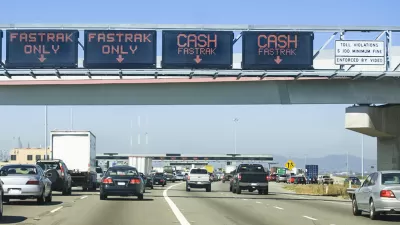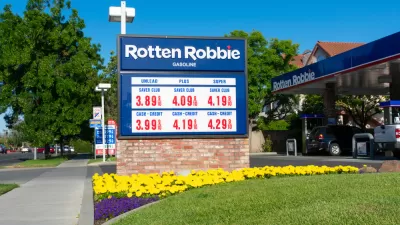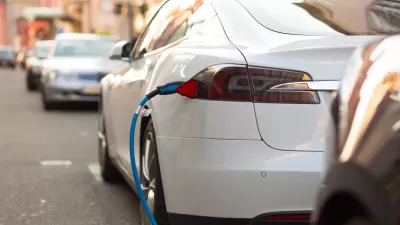After determining the size and scope of President Biden's infrastructure package, the next biggest challenge is determining how to pay for it. The partisan divide is steep, but Roll Call exposes division within the Democrats' ranks.

First, an update on the size of the Biden infrastructure package, aka America Jobs Plan, from Politico on May 21 (also posted here):
The Biden administration on Friday said it was slashing the price tag on an infrastructure proposal by more than $500 billion in an attempt to win Republican support...The White House’s counteroffer—to $1.7 trillion from $2.25 trillion—was meant to demonstrate that the administration remains eager to craft a deal with Republicans...
How to pay for any plan, be it $1.7 trillion or $568 billion, will be just as challenging, if not more. Lindsey McPherson of Roll Call explores Congress's partisan divide on infrastructure funding in a deep dive (source article) published May 18, prior to a Senate Finance Committee hearing held that day and a House Ways and Means Committee hearing on May 19 "to discuss the universe of potential infrastructure offsets."
Top Democrats argue voters would prefer tax increases on a small group of wealthy individuals and corporations to pay for infrastructure spending over broad-based “user fees” that would take a bigger chunk out of lower-income voters’ wallets.
More importantly, that's also the position of the Biden administration, laid out in the Treasury Department's Made in America Tax Plan released last month.
"Biden is pushing to raise the corporate tax rate to pay for the package, a non-starter for Senate Republicans, who have instead suggested user fees, which the White House says would violate Biden’s pledge not to raise taxes on people making less than $400,000," notes Politico.
Not all Democrats rule out user fees
However, it turns out that not all Democrats in Congress are opposed to user fees which have been the primary means of sustaining the Highway Trust Fund from 1956 until 2008. McPherson writes:
“I think there’s a willingness to consider how you fund it on an ongoing basis,” said Sen. Benjamin L. Cardin, D-Md., a member of the Environment and Public Works and Finance committees.
Senate Environment and Public Works Chairman Thomas R. Carper, D-Del., who also serves on Finance, told reporters ahead of a meeting with Biden last week that “those who use roads, highways, bridges … should bear part of the cost.”
Finance Committee chair, Sen. Ron Wyden, appears firmly in the camp of what Democrats are calling "progressive taxation."
“The only folks who are not on board with our agenda of progressive taxation are so many far-right Republicans in Congress and their donors,” the Oregon Democrat said at a virtual rally Monday hosted by Americans for Tax Fairness with John Anzalone, a Democratic strategist and Biden pollster, Speaker Nancy Pelosi and others.
By contrast, Finance Democrats such as Cardin, Carper and Washington’s Maria Cantwell are of the view that the past application of user fees to finance highways, airports and more makes it difficult to take those options off the table.
“We are not homogeneous,” Cantwell said of her fellow Finance Democrats.
Rep. Earl Blumenauer, D-Ore., who has a long history of proposing legislation to hike fuel taxes and study mileage fee alternatives, "argues there’s a disconnect between public perception of those taxes outside the Beltway and the political pain they cause on Capitol Hill."
The gas tax has “increased in something like 36 states on a bipartisan basis. And the people who voted for it were reelected at a greater percentage than the people who voted against it,” said the Ways and Means member, who introduced gas tax increase bills in the last four Congresses. “But we’ve never had the context here where it made sense with an administration that would be supportive.”
The gas tax was last raised in 1993 by 4.3 cents per gallon by President Bill Clinton, the only Democratic president to have hiked the gas tax since the creation of the Highway Trust Fund in 1956 by President Dwight Eisenhower. Presidents Ronald Reagan and George H.W. Bush each raised the tax by a nickel a gallon in 1982 and 1990, respectively. [See "US Federal Government Gasoline Tax Since 1933" by ThoughtCo.]
Republican counter-proposal
"Republicans, led by West Virginia Sen. Shelley Moore Capito, proposed $568 billion in spending solely on physical infrastructure, paid for with user fees and unspent coronavirus relief funds," adds McPherson. [See Planetizen: GOP Counterproposal Aims to Restore the Infrastructure Status Quo, April 25.]
Capito and GOP senators who met with Biden at the White House last week are working on a revised offer with more detailed offsets."
However, the Capito plan doesn't hike gas taxes. Rather, it would "impose some user fees on electric vehicles, which pay no fuel tax," notes Capito's office. "A mileage fee is one idea floated."
Just such a fee caused Washington Gov. Jay Inslee to partially veto legislation on May 13 that would have set a goal of ending gas-powered passenger vehicle sales after 2030, a goal he promoted as a Democratic presidential primary candidate in 2019.
Hans Nichols and Alayna Treene of Axios on May 14 also explore Democratic divisions in terms of asking highway users, regardless of their incomes, to help fund the infrastructure package.
Some Senate Democrats are open to paying for a compromise infrastructure package by imposing user fees, including increasing the gas tax and raising money from electric car drivers through a vehicle-miles-traveled charge.
The last word goes to Blumenauer, the veteran user fee proponent.
"With the Biden administration opposed to a gas tax increase and a shift toward more fuel-efficient and electric cars that don’t pay as much into the system, Blumenauer is no longer pushing the idea," adds McPherson.
“We need to actually eliminate the gas tax and replace it with something that’s sustainable, but simply raising the gas tax is a distraction,” he said.
Related in Planetizen:
- Biden's Infrastructure Targets Shift as Negotiations Commence, May 23, 2021
-
U.S. DOT Says Mileage Charge Is Not in Biden's Plan, March 31, 2021
-
Biden Administration Rules Out Gas Tax Hike, February 1, 2021
-
Road Usage Charge at Least 10 Years Away, March 12, 2018
-
Republican Co-Sponsors Rep. Earl Blumenauer's 15-cent Gas Tax Bill, December 8, 2014
FULL STORY: Democrats push tax hikes on wealthy over infrastructure ‘user fees’

Planetizen Federal Action Tracker
A weekly monitor of how Trump’s orders and actions are impacting planners and planning in America.

Restaurant Patios Were a Pandemic Win — Why Were They so Hard to Keep?
Social distancing requirements and changes in travel patterns prompted cities to pilot new uses for street and sidewalk space. Then it got complicated.

Map: Where Senate Republicans Want to Sell Your Public Lands
For public land advocates, the Senate Republicans’ proposal to sell millions of acres of public land in the West is “the biggest fight of their careers.”

Maui's Vacation Rental Debate Turns Ugly
Verbal attacks, misinformation campaigns and fistfights plague a high-stakes debate to convert thousands of vacation rentals into long-term housing.

San Francisco Suspends Traffic Calming Amidst Record Deaths
Citing “a challenging fiscal landscape,” the city will cease the program on the heels of 42 traffic deaths, including 24 pedestrians.

California Homeless Arrests, Citations Spike After Ruling
An investigation reveals that anti-homeless actions increased up to 500% after Grants Pass v. Johnson — even in cities claiming no policy change.
Urban Design for Planners 1: Software Tools
This six-course series explores essential urban design concepts using open source software and equips planners with the tools they need to participate fully in the urban design process.
Planning for Universal Design
Learn the tools for implementing Universal Design in planning regulations.
Heyer Gruel & Associates PA
JM Goldson LLC
Custer County Colorado
City of Camden Redevelopment Agency
City of Astoria
Transportation Research & Education Center (TREC) at Portland State University
Camden Redevelopment Agency
City of Claremont
Municipality of Princeton (NJ)




























